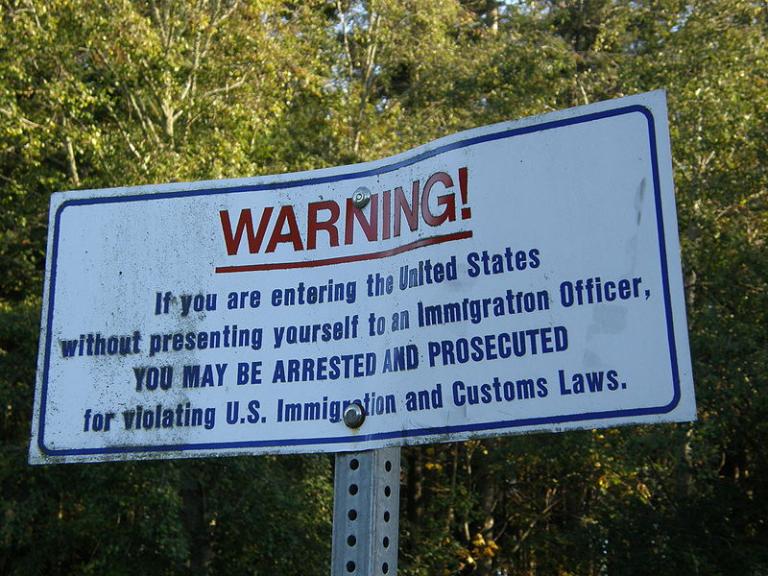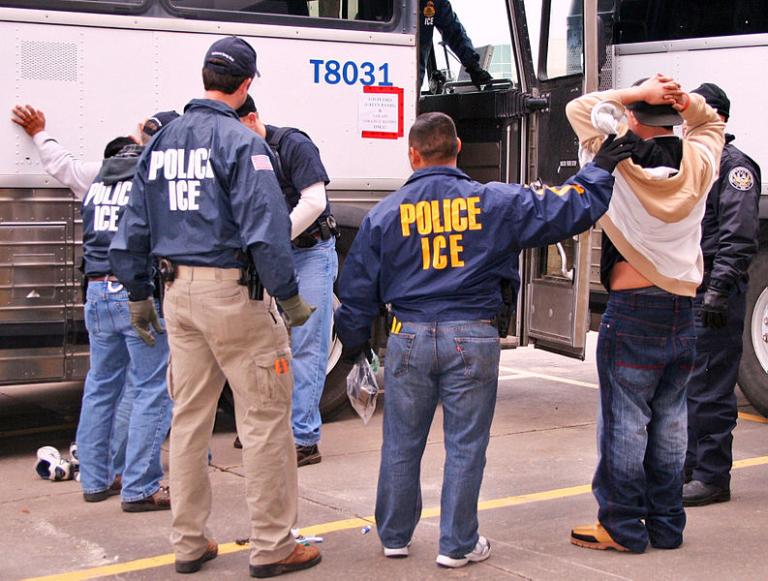
Every so often I feel like I need to type this up: what I’d like to see with respect to illegal immigration.
My desired end state is, simply, an end to illegal immigration by preventing those who are in the country without authorization from working, either in the formal economy (that is, with forged IDs) or under the table. With respect to the former, it’s a matter of instituting an E-Verify mandate — and, no, having to prove that you are who you say you are, when starting a new job is not the first step towards a “show me your papers” police state. With respect to the latter, it’s not just a matter of preventing illegal immigrants from working, but policing tax fraud (on the part of the workers who don’t report their wages and the employers who don’t pay into Social Security, unemployment insurance, and workers’ comp) and welfare fraud (individuals who claim eligibility for food stamps and other benefits while earning unreported income), and stretches beyond illegal immigrants to all manner of other workers.
At the same time, I do believe that the United States has done a disservice to illegal immigrants in our persistent failure to institute such a system, and in the rhetoric of our politicians that illegal immigrants are doing honorable work that “Americans won’t do” and statements from Republicans and Democrats alike that have given them every reason to believe they were doing nothing wrong in crossing the border illegally or overstaying a visa, and making this country their home. Immigrants who have come here long enough ago that they no longer have the same relationships and connections back in their home country should be permitted to stay, not because they have the right to demand to be “given papers” but because it’s the right, humane thing to do, and because of our ongoing inaction, and because the de facto policy of years of government officials has been, “don’t commit any terrible crimes and we don’t care if you work using a forged ID.”
Who should be deported? Those who are recent arrivals, for one. Those who have no connections to their wider communities, who have not assimilated, who have not learned English.
And, again, these longtime immigrants should be permitted to stay not be cause they have any right, and certainly not because they’ve angrily demanded to be able to do so at rallies and marches, waving Mexican flags. (Doing so, as far as I can tell, only harms their ability to persuade others.) I further reject any claims that immigrants have some sort of moral right to come here, or that it’s immoral to deport someone who has no legal right to live here, and, what’s more, if someone was ordered deported many years ago, and has managed to evade that order, or has been given ongoing deferrals, that doesn’t somehow erase the deportation order or give them the right to remain. But nonetheless, it was the policy of the federal government to provide de facto amnesty, and it was politicians of both parties who extended words of welcome to illegal immigrants, and that’s what’s gotten us where we are today, and that can’t be undone.
But how do we get from here to there — the “there”, that is, being a state of affairs in which existing illegal immigrants, except for the newer, non-assimilated arrivals, are given residency but that illegal immigration is largely eliminated going forward?
The problem is that there are still too many politicians who are relatively indifferent to not just past, but also future illegal immigration. If a system eliminating employment of illegal residents is not truly implemented but just sits on the books with as much value as federal laws against pot, for instance, then we’ll create the expectation among future migrants that our system is just one of “paying your dues”: come here, work illegally until your “turn” comes for legalization. (As it is, periodically, one reads of surveys conducted in Mexico in which respondents say that there is nothing morally wrong with crossing to the U.S. illegally, and even stating that they have the moral right to do so if they wish.) And we’ll have a whole ‘nother wave of illegal immigrants.
So how do we ensure that the system is robustly enforced? My thought right now is that we need some sticks: assuming that the same federal officials and political interest groups who prefer indifferent enforcement also support immigration in general, legislation could add explicitly non-waivable stipulations that, if certain defined metrics measuring effectiveness of border control and workplace control are not met, then the federal government may not issue immigration visas, not for family reunification, not for H1-B special skills visas, not for anything except for maybe bare-bones “emergency”-type visas.
Is this pie in the sky? Maybe. But it avoids the difficulty that, if legislation provides for immediate legalization and a promise of future enforcement, we have to trust the government to implement the latter; and if legislation provides for immediate enforcement and a promise of future legalization, we have to trust that the enforcement won’t harm those who would be slated for later legalization.
Image from Wikimedia Commons.










